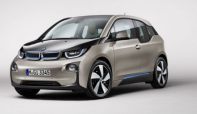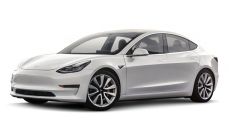Duration: two days (14 hours)
Target : To acquire the knowledge necessary to integrate the Electric Vehicle in his work environment.
Intended audience :
- Engineers and technicians in the electrical industry and energy.
- Managers of fleets.
Curriculum :
Day 1 - The technology of the vehicle.
• Introduction and presentation of the course.
• Principles of electrical current, voltage.
• Principles energy: power, energy efficiency.
• Technology of electric motors: DC motor, synchronous and asynchronous.
• Control of an electric motor: voltage inverter (synchronous and asynchronous).
• Battery technology: power density, energy density, number of cycles, operating temperature ...
• Vehicle electric.
• Future developments: fuel cell (VE next generation) ...
• Evaluation of the learner.
Day 2 - Performance, infrastructure and services
• Back to the history of V.E. (Particularly in the 1990s).
• Dynamic performance of an electric vehicle compared to a combustion engine vehicle.
• CO2 emission from well to wheel depending on geographic location. Impact on the global market.
• Reliability and maintenance.
• Infrastructure Charging: Standardization of catch and load modes.
• Impact on electricity generation and environmental impact.
• Introduction to Smart Grid: SmartGrids and V2GRID.
• Projects and calendar manufacturers, output production models, prototypes ...
• Forecasts of EV market in 2020.
• Technological developments in the medium term.
• Applicable standards (UTE 18550 ...).
• Evaluation of the learner.
• Conclusion of the course.
Rating : control of certifying knowledge of the level attained at the end of training.
Support the training course : powerpoint presentation animated and interactive
Support : course workbook in color (250 pages) + USB key


Terminal fast charge Schneider
mode 3 (AC) 43 kVA
mode 4 (DC) 50 kVA

Fall 2011 marks undoubtedly the launch of electric cars and hybrid in France.
This new technology is revolutionizing the automotive world. CFPELEC Formation Conseil offers a two-day training that approaches the specificities of this new vehicle and the foreseeable consequences of maintenance and infrastructure ...




Engineers- Technicians
Car experts (insurance)
Public authorities
Fleet management
Location Longue Durée
Terminals installation
ESPACE FORMATION avec CFPELEC




Réalisations